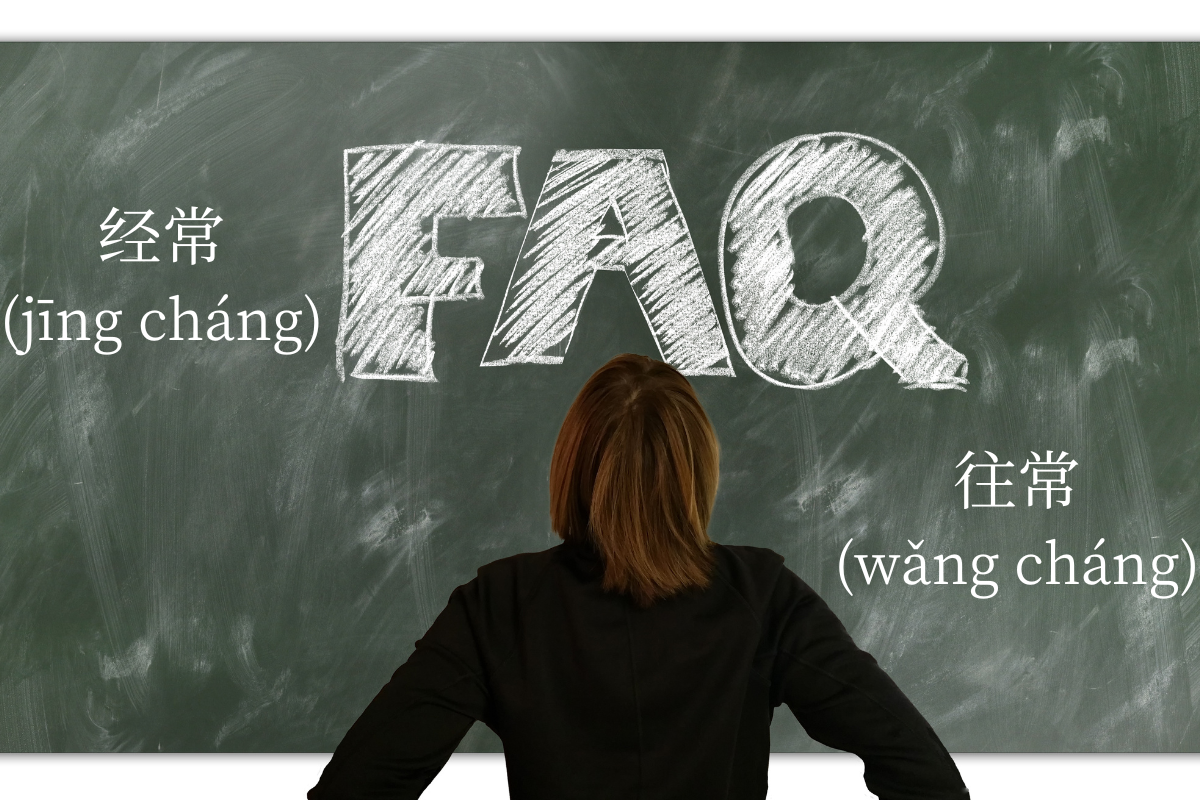HSK4 Words: 经常 (jīng cháng) VS 往常 (wǎng cháng)
The Chinese language is rich in vocabulary, with many words sharing similar meanings but possessing subtle differences in usage and context. Two such words that often cause confusion among English speakers are 经常 (jīng cháng) and 往常 (wǎng cháng). While both these words can be translated into English as 'usually', they carry distinct connotations in Chinese that set them apart. Today, we will learn the HSK4 words 经常 (jīng cháng) VS 往常 (wǎng cháng).

经常 (jīng cháng) typically implies a habit or behaviour that occurs frequently, where the action or state described is repeated over a period of time with relatively high frequency. In use, there is often more emphasis on the present situation, i.e. habits or behaviours over a current period of time.
Examples:
- I often take a walk in the park.
我经常去公园散步。
wǒ jīng cháng qù gōng yuán sàn bù 。 - He is often late.
他经常迟到。
tā jīng cháng chí dào 。 - She often gets together with her friends.
她经常和朋友们聚会。
tā jīng cháng hé péng yǒu men jù huì 。
往常 (wǎng cháng), on the other hand, implies the usual or habitual state or condition. It often suggests the normal or typical situation or condition. Usually focuses more on the past, i.e., what was the norm or usual situation in the past. In addition, usual can indicate a temporal contrast, implying a different situation from the present.
Examples:
- He usually walks to work.
往常他都是步行上班。
wǎng cháng tā dōu shì bù xíng shàng bān 。 - He usually walks to work.
往常这里总是很安静。
wǎng cháng zhè lǐ zǒng shì hěn ān jìng 。 - Usually, she takes the bus for her internship.
往常她都是坐公交车实习。
wǎng cháng tā dōu shì zuò gōng jiāo shì shí。
In summary, 经常 (jīng cháng) and 往常 (wǎng cháng) are two distinct words in Chinese. 经常(jīng cháng) implies a habitual or frequent occurrence of something, while 往常(wǎng cháng) suggests the usual or habitual state or condition.
Quiz: Please consider whether to use 经常 (jīng cháng) VS 往常 (wǎng cháng) in the following sentences.
- 他______喜欢听音乐,但今天他选择了看书。
tā ______ xǐ huān tīng yīn yuè , dàn jīn tiān tā xuǎn zé le kàn shū 。 - ______我们都会在周末聚会。
______ wǒ men dōu huì zài zhōu mò jù huì 。 - ______锻炼身体对健康有益。
______ duàn liàn shēn tǐ duì jiàn kāng yǒu yì 。
Answers:
- 往常 (wǎng cháng)
- 往常 (wǎng cháng)
- 经常 (jīng cháng)